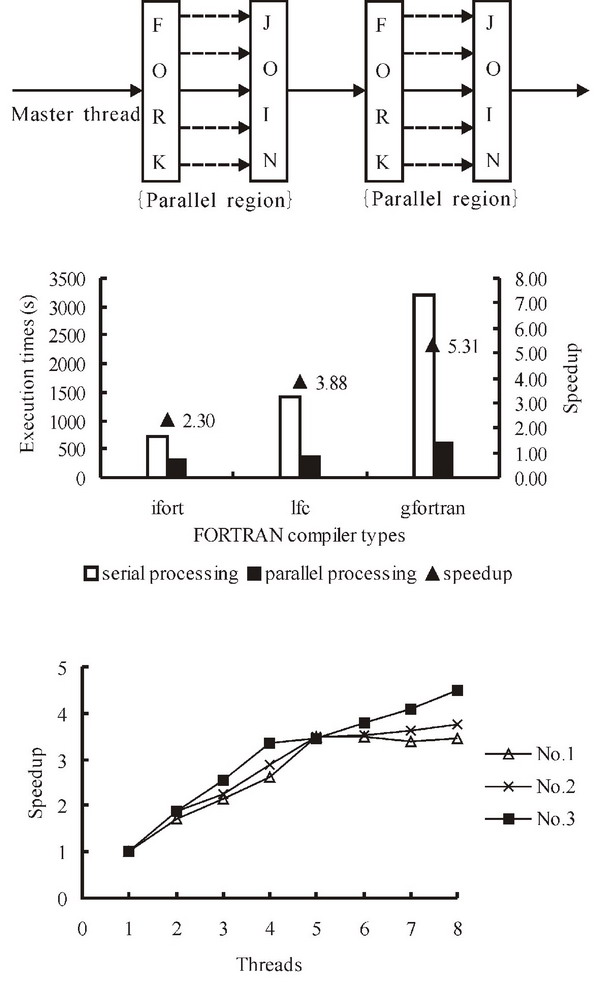Highlight 2009-053Update time:12 11, 2009
Ground Water, 2009, 47(6): 845-850 A Parallel PCG Solver for MODFLOW Dong, Yanhui1; Li, Guomin Abstract
In order to simulate large-scale ground water flow problems more efficiently with MODFLOW, the OpenMP programming paradigm was used to parallelize the preconditioned conjugate-gradient (PCG) solver with in this study. Incremental parallelization, the significant advantage supported by OpenMP on a shared-memory computer, made the solver transit to a parallel program smoothly one block of code at a time. The parallel PCG solver, suitable for both MODFLOW-2000 and MODFLOW-2005, is verified using an 8-processor computer. Both the impact of compilers and different model domain sizes were considered in the numerical experiments. Based on the timing results, execution times using the parallel PCG solver are typically about 1.40 to 5.31 times faster than those using the serial one. In addition, the simulation results are the exact same as the original PCG solver, because the majority of serial codes were not changed. It is worth noting that this parallelizing approach reduces cost in terms of software maintenance because only a single source PCG solver code needs to be maintained in the MODFLOW source tree.
|
Contact
Related Articles
Reference
|
-
SIMSSecondary Ion Mass Spectrometer Laboratory
-
MC-ICPMSMultiple-collector ICPMS Laboratory
-
EM & TEMElectron Microprobe and Transmission Electron Microscope Laboratory
-
SISolid Isotope Laboratory
-
StIStable Isotope Laboratory
-
RMPARock-Mineral Preparation and Analysis
-
AAH40Ar/39Ar & (U-Th)/He Laboratory
-
EMLElectron Microscopy Laboratory
-
USCLUranium Series Chronology Laboratory
-
SASeismic Array Laboratory
-
SEELaboratory of Space Environment Exploration Laboratory
-
PGPaleomagnetism and Geochronology Laboratory
-
BioMNSFrance-China Bio-mineralization and Nano-structure Laboratory

 Print
Print Close
Close
